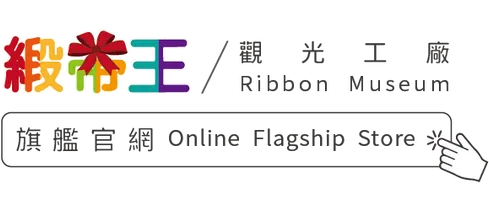- Home
- About us
- The Factory
- Language
- 中文
- Currency

Entrepreneurship Process
"Yilan people are said to be descendants of pioneers." Founder Shi-Chang Wu was born and raised in the countryside of Yilan. With the tenacious blood of the pioneers, he has ambition to success when he was a child. Graduating from middle school in 1976, he immediately went to Taichung and learnt the essence of textile industry from his relatives working on the wholesale of clothing accessories. Not only is he a salesman running through Taiwan, he is also an intern in factory after work. Such hard-working he was, it makes him successful in future.
Attracted by the cheap labors and land, many garment and ribbon manufacturers migrated to China in the 80s and 90sm, but Founder Wu did not follow the trend. Instead in 1998, he bought the first machine with a million of deposit and 500 thousands of loans. A company, King Young Enterprise, with two workers initiated in the Hemei Township, the most important textile industries area in Taiwan. At first, it was just OEM, picking up orders that other factories could not complete with nearly no profit. Few years later, he plotted one step ahead and entered the ODM market. In the beginning, he was given cold-shoulders due to lack of brand awareness. However, because of his perseverance and belief of “doing the best at a loss”, King Young earned the reputation among many enterprises. Relied on its technique and reputation, King Young broke through the restrictions of many vendors and the competitive market of textile in China. Facing the decision to stay or leave, he determined to stay in Taiwan in order to keep their exclusive core technique secret. The decision made King Young the leading brand in the ribbon industry.
In the mid-1990s, domestic orders dropped sharply as the industry slowly migrated to other Asian countries. Founder Wu had no choice but to explore the foreign market. He and general manager Sophia, carrying a suitcase full of catalogs and samples, visited various major international stationery and gift exhibitions. Their endurance allowed them to successfully get in contact with Offray, a centurial American ribbon manufactory. At this time, the reputation of King Young was well-known internationally, and the numbers of foreign orders increased.
International Anti-Dumping Agreement
The global financial crisis in 2008 shocked the US economy. In response to it, the United States proposed strict trade protection measures, antitrust and antidumping policies, to boycott Chinese and Taiwanese ribbon industries. Facing a lengthy and expensive international lawsuit, Founder Wu never gave up and led the company to win the lawsuit successfully.
In March 2011, Ribbon King Museum, the first ribbon museum in Asia, was established in Lukang, Changhua. Rated the “Best Tourist Factory” on the internet, Ribbon King Museum has the most ribbon collection and shares the most professional knowledge of textile industry. It presents the entire assembly line of ribbon manufacturing and provides numerous DIY activities. To give visitors an entirely different sightseeing experience is the intention and motivation of Ribbon King.
Even with a company in such scale, Founder Wu still stands on the first line every day, explaining the complicated process of producing ribbon to the tourists and introducing his story as an entrepreneur. Ribbons have always been accessories used in daily life. Without witnessing the spectacular of Ribbon King Museum, it would be difficult to imagine that it could cause the US to file a dumping lawsuit against Taiwan’s textile industry.
- About Us
- How to shop
- Contact us

